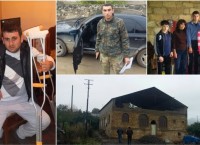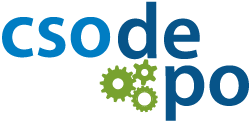
Newsletter from Tufenkian Foundation Winter 2016
News From The |
|
Fall - Winter 2016 |
|
Not displaying correctly? Select web version at the bottom of this email. |
 |
WSC Second Shelter Needs SupportThe Women's Support Center (WSC) has been working diligently to break the taboo surrounding domestic violence in Armenia. Now, more than ever before, women are calling their hotline number and seeking shelter support. The WSC shelter is usually at full capacity, which is why they opened a second one this year. The situation is grave as there is no law criminalizing domestic violence and no safeguards to protect victims & their children. By contributing to their campaign, you will ensure that 50 women and children in Armenia receive shelter support and benefit from all the services the WSC offers. Established in 2010, the Women’s Support Center is a comprehensive domestic violence assistance and prevention program initiated by the Tufenkian Foundation, in partnership with USAID and the Armenian International Women’s Association. |
 |
TF Addresses Housing Needs of Wounded SoldiersThe unprovoked four-day war in April 2016 created numerous new requirements in Artsakh. TF stood by our compatriots during this difficult situation and thanks to the support of TF donors, the Foundation was able to launch and complete several new projects. Many wounded soldiers do not have homes, while other have homes but in dire situations and in desperate need of major repairs. The TF team decided to address the needs of many heavily wounded soldiers, and has completed the home renovation of Special Forces Officer Vachakan in the village of Togh in Hadrut. TF has also begun renovation projects on Varujan Sahakyan’s home, who is also Special Forces Officer who had been severely wounded and who lives in the Hadrut region with his wife and three teenage children. Apart from house renovations in Hadrut, TF helps those who do not have homes. The Foundation purchased a large house in the city of Martakert for two brothers who were both injured in April – Eduard and Erik Matevosyan. They both serve in the Artsakh army along with their mother. When they were heavily wounded during the war, it became almost impossible to maintain decent living conditions, especially since they did not have a house of their own. Another single-floor house in the city of Martakert was purchased for a contract officer Erik Babayan who used to rent a house in the now abandoned Talish village. The family preferred to live in Martakert because it is the closest town to Talish. They were forced to leave Talish following the April hostilities. |
 |
MLRI Holds a Round-table Discussion on Mining Legislation GapsThe AUA Center for Responsible Mining and the Government of Armenia organized a round-table discussion on the gaps in Armenia’s mining legislation. The key presenter at the round-table was Jonathan Fulcher, an international mining law expert from the Sustainable Minerals Institute (SMI) of the University of Queensland who presented the main findings of six working papers developed by SMI for MLRI. Mr. Fulcher noted that a number of things stuck out from the analysis of the current situation. Although the framework of laws with regard to the mining sector was reasonable, detailed policies and procedures for companies on how to engage are required. According to Mr. Fulcher, an important thing to understand is that environmental licenses should not be licenses to pollute. He also highlighted the idea of corporate accountability citing Australian legislation, which, for instance, fines the members of the corporate group if a polluting member of the group becomes insolvent. The Mining Legislation Reform Initiative (MLRI) is a project of the American University of Armenia’s Center for Responsible Mining (AUA CRM), and receives primary support from the Tufenkian Foundation. |
 |
Wealthy Parents, Happy ChildrenLast year, the Vanadzor Shogh Center established a partnership with the Helsinki Group in Spitak, after which it launched a program for vulnerable women facing gender discrimination and domestic abuse. This program is designed to help women to become entrepreneurs and provide sustainable income for their families. The participants of this program are the parents of children who attend the Shogh Center. In the beginning, 18 women were selected and trained on how to write a business plan, assess their needs and develop a budget. After the training, they identified the type of entrepreneurship in which they would like to be involved and submitted business plans accordingly. The Helsinki Group reviewed these plans and approved them to receive financial support. The participants received funding in March 2016 and started their small businesses. The area of their activities is very broad: make-up and nail artists, hairstylists, confectioners, tailors etc. It is foreseen that in two years’ time, 200 women will receive support – 60 will obtain certified vocational trainings, 120 women will receive financial support to kick-off their small businesses, and 80 will obtain job placement support. In the first 9 months since the funding of small businesses, a lot has changed in the lives of these women and their families. They are now able to provide their children with food and basic necessities and spend more time with them, considering that most are home-based business. The Vanadzor “Shogh” Daycare Center is a joint program of the Tufenkian Foundation and the Armenian Missionary Association of America (AMAA). |
 |
Distinguished Award for WSCOn December 7, during a meeting with civil society and international organizations, the Chairman of the Investigative Committee Aghvan Hovsepyan congratulated the Women’s Support Center for their outstanding work with survivors of domestic violence and awarded a certificate of appreciation to one of the investigators who worked diligently with the WSC office. In attendance were the US ambassador, UN and OSCE officials. |





